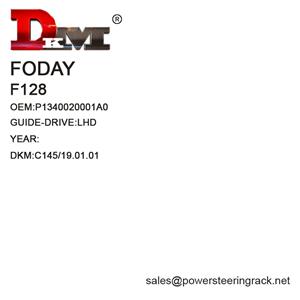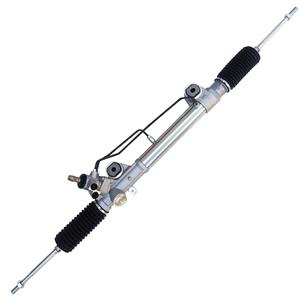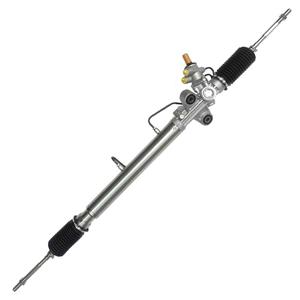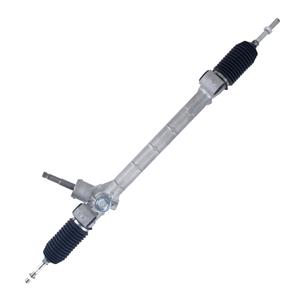What causes noise in hydraulic power steering systems?
Hydraulic power steering systems are a common steering assist method in modern cars, which makes steering operations easier and more precise through the pressure of hydraulic oil. However, many car owners may find that the hydraulic power steering system generates noise during use. This noise is not only uncomfortable, but may also indicate potential mechanical problems. If not handled in time, the noise problem may lead to more serious failures.
This article will explore in detail the reasons why hydraulic power steering systems generate noise and help car owners understand and solve this problem.
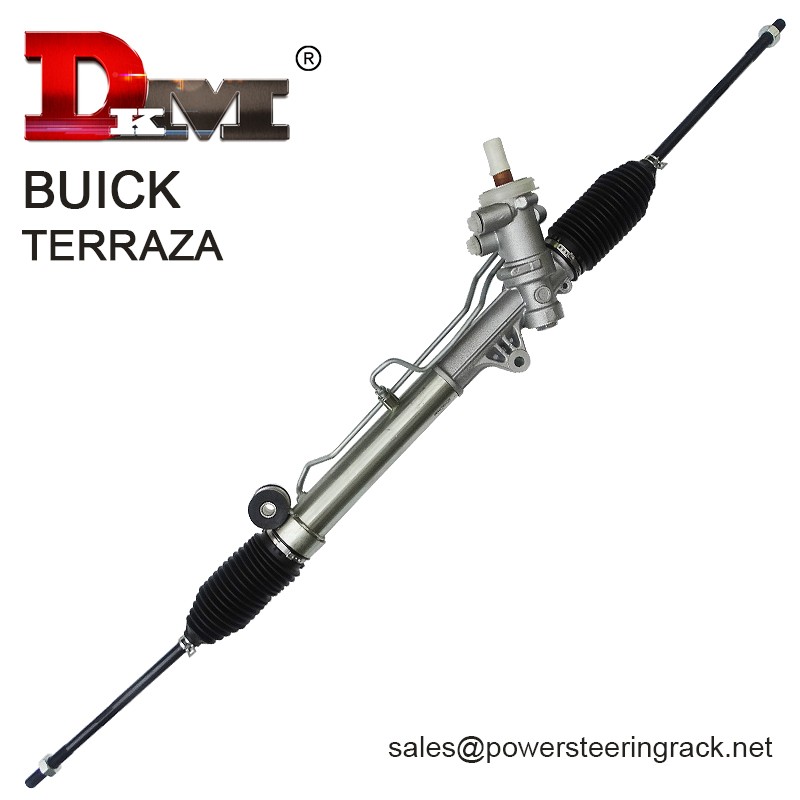
What are the basic principles of hydraulic power steering systems?
Before discussing the causes of noise, it is very important to understand the basic principles of hydraulic power steering systems. The core components of the hydraulic power steering system include the power steering pump, steering rack, hydraulic oil pipeline, and fluid storage tank. Its working principle is as follows:
1. Power steering pump: The power steering pump is driven by the engine to generate hydraulic oil pressure.
2. Hydraulic oil: High-pressure hydraulic oil is transported to the steering rack through the pipeline to help push the piston of the steering rack, making it easy for the vehicle to steer.
3. Steering rack: The steering rack drives the wheels to rotate according to the input of the steering wheel and the hydraulic power assist.
4. Fluid reservoir: The fluid reservoir is used to store hydraulic oil and replenish the hydraulic oil in the system.
When the driver turns the steering wheel, the hydraulic oil assists the rotation through the pressure generated by the steering pump, reducing the resistance to the steering wheel. However, the hydraulic power steering system is a highly sophisticated system, and any failure or abnormal state of any component may cause noise.
What is the reason for the noise in the hydraulic power steering system?
Reasons for noise in the hydraulic power steering system:
1. Insufficient hydraulic oil or oil mixed with air
2. Power steering pump failure
3. Steering rack failure
4. Poor quality or deterioration of hydraulic oil
5. Loose pipes or joints
6. Excessive pressure caused by the steering wheel hitting the bottom
There are many reasons for the noise in the hydraulic power steering system, mainly concentrated in these aspects.
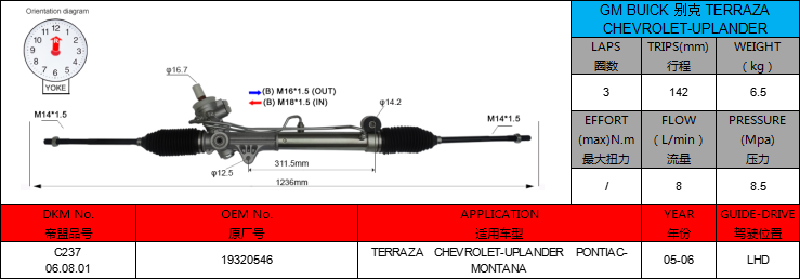
Insufficient hydraulic oil or oil mixed with air
Insufficient hydraulic oil or mixed with air is one of the most common reasons for noise in the hydraulic power steering system. When the hydraulic oil is insufficient, the power steering pump will produce "idling" phenomenon when running, which is usually accompanied by a harsh screaming or buzzing sound. In addition, when air is mixed into the system, air bubbles will produce noise as the hydraulic oil flows. This noise often manifests as a continuous gurgling sound or a sound similar to water flow.
Cause Analysis:
● Insufficient hydraulic oil may be caused by system leakage or hydraulic oil consumption.
● Air mixing is usually caused by loose pipe joints or tiny leaks in the system.
Power Steering Pump Failure
The power steering pump is the heart of the hydraulic power steering system, and its working condition directly affects the normal operation of the entire system. If the blades and bearings in the power steering pump are worn, damaged or improperly installed, they will cause abnormal noise. Especially when the engine is running at low speed or cold start, this noise may be more obvious, manifested as mechanical friction, clatter or screaming.
Cause Analysis:
● Long-term use causes internal wear of the pump.
● Low-quality or inferior hydraulic oil will accelerate the wear of the pump.
● Improper pump installation or loose bolts will also produce abnormal noise.
Steering rack failure
The steering rack is a key component in the hydraulic power steering system responsible for converting hydraulic power assistance into mechanical movement. When the internal components of the steering rack (such as gears, sliders) wear or fail, obvious friction or mechanical noise will be generated. In addition, the decrease in the fit between the rack and the hydraulic cylinder may also cause poor flow of hydraulic oil, thereby causing noise.
Cause analysis:
● Long-term use of the steering rack causes gear wear or loose internal parts.
● Increased contaminants in the hydraulic oil lead to increased friction inside the rack.
Poor quality or deterioration of hydraulic oil
Hydraulic oil plays a role in lubrication and pressure transmission in the hydraulic power steering system. If the hydraulic oil is of poor quality, deteriorated, or improperly used (such as too high or too low viscosity), it may cause poor fluidity in the system, increase friction, and thus generate noise. In addition, contaminants (such as water, impurities) mixed into the hydraulic oil may also cause poor lubrication of the pump and rack, further causing noise.
Cause analysis:
● Failure to replace the hydraulic oil for a long time causes the oil to deteriorate or be contaminated.
● Use of hydraulic oil that does not match the vehicle.
Loose pipes or joints
The pipes and joints in the hydraulic power steering system are responsible for the transmission and sealing of hydraulic oil. If these parts are loose or aged, hydraulic oil may leak or air may enter the system, causing noise. In addition, loose pipes will make knocking or friction sounds due to vibration when the engine is running.
Cause analysis:
● Long-term use leads to loose joints.
● The vehicle passes through bumpy roads, causing the pipes to shift or be damaged.
Excessive pressure caused by the steering wheel being turned to the bottom
When the driver turns the steering wheel to the bottom, the hydraulic system will generate excessive pressure, which exceeds the design load of the system and may cause short-term sharp noise. This phenomenon is usually accompanied by high-load operation of the hydraulic pump, which will cause increased wear of the pump over time and further increase the frequency and intensity of the noise.
Cause analysis:
● Frequent turning of the steering wheel to the bottom causes the system to be in a high-pressure state for a long time.
● The system lacks a buffer device to prevent excessive pressure or the buffer function fails.
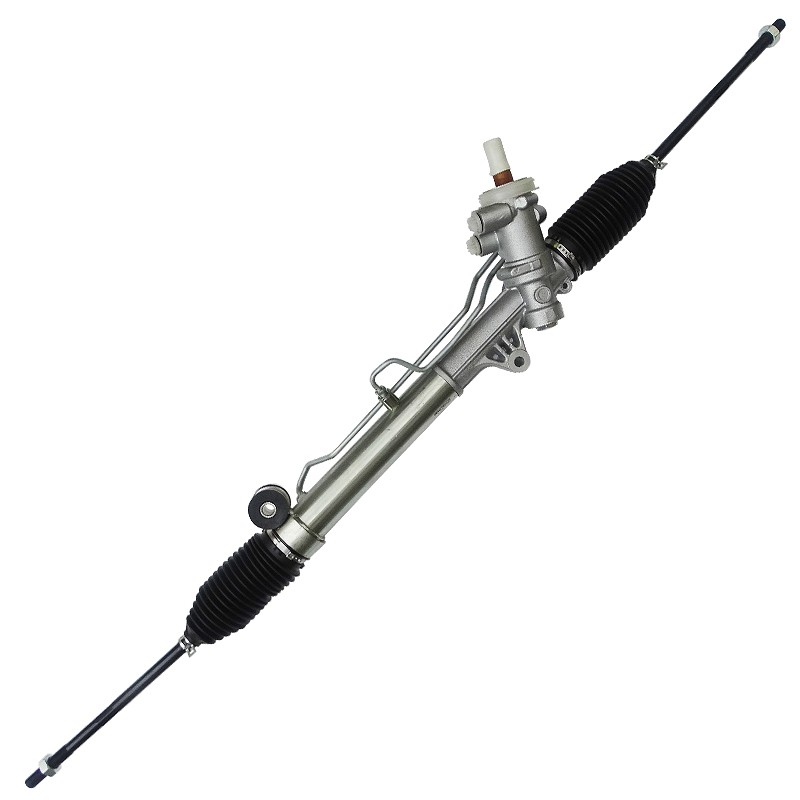
What effect does noise have on the hydraulic power steering system?
The noise generated by the hydraulic power steering system not only affects the driving experience, but may also indicate potential mechanical problems. If not dealt with in time, these noise problems may lead to more serious consequences.
Increased system wear
Noise is often accompanied by abnormal friction and vibration inside the system. This situation will accelerate the wear of hydraulic pumps, racks, seals and other related components and shorten their service life. Especially when air or impurities are mixed in the hydraulic oil, the lubrication effect of the system will be greatly reduced, further aggravating the wear of internal components.
Weakened or failed steering assistance
Noise problems are often accompanied by abnormal hydraulic oil pressure. If the hydraulic pump does not work properly or the flow of hydraulic oil is blocked, the system will not be able to provide sufficient steering assistance. The driver may find that the steering wheel becomes heavy, and even in some cases, the steering assistance fails completely, which will greatly affect driving safety.
Increased maintenance costs
Long-term neglect of the noise problem of the hydraulic power steering system may cause serious damage to the internal components of the system, and eventually the entire steering system or its core components need to be replaced. This will not only increase the maintenance cost, but also affect the normal use of the vehicle.
How to prevent and deal with the noise problem of the hydraulic power steering system?
Although the noise problem may not be completely avoided, car owners can significantly reduce the risk of noise from the hydraulic power steering system through good maintenance and operating habits. First, check the hydraulic oil level and status regularly to ensure that there is enough hydraulic oil in the system. If the hydraulic oil level is found to be too low, it should be replenished in time. If the hydraulic oil becomes dark, deteriorates, or contains impurities, it should be replaced in time.
Second, avoid frequently turning the steering wheel to the bottom, especially when parking or driving at low speed. Such operations will increase the pressure of the hydraulic system, which may cause damage to the hydraulic pump and other components over a long period of time. In addition, regularly check the various components of the hydraulic power steering system, including the power steering pump, steering rack, hydraulic lines and joints. Make sure that these components are not loose, worn or aged. For loose or damaged components, they should be repaired or replaced in time.
Choose high-quality hydraulic oil that matches the vehicle and ensure that it has good lubrication and anti-wear properties. Avoid using inferior or unsuitable hydraulic oil to prevent wear and noise problems within the system.

